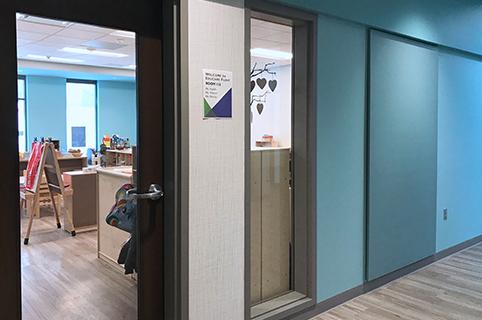A Water Crisis Promotes Early Childhood Education and Health
How a team approach financed and constructed a new school in remarkable time.

PNC Point of View Real People. Real Perspective. Real Insights. »
The potential health impact on young children in Flint, Michigan is serious. Two years ago, lead in the city’s water supply reached toxic levels and the drinking water was declared unsafe. At high levels, exposure to lead can affect almost every system in the human body. For young children, especially, it can contribute to learning and behavior problems, slow growth and physical development, and lead to hearing and speech problems. Lead exposure also has been associated with Attention-deficit/hyperactivity disorder (ADHD). A Duke University study found that exposure to lead can have a negative impact on children’s lives for decades.
Community leaders and agencies in Flint came together to coordinate a long-term response effort and to develop short- and long-term plans to help those people impacted. One of the solutions is to promote early childhood education as a way to combat the effects of lead exposure.
Fast-Tracking a New School
Responding to the need to make universal early childhood education available for Flint’s children, regardless of income, the Community Foundation of Greater Flint and the C.S. Mott Foundation proposed the construction of an early childhood education center to care for children exposed to the worst of the city’s lead-tainted water.
The new $15 million facility was constructed in a fast-tracked, year-long effort and opened its doors to students in December 2017. About 200 children, ranging in age from two months to five years, attend the center. They receive lessons designed to promote cognitive development in hopes of countering the effect of high lead exposure. The center runs under the Educare learning model, an approach recognized as one of the nation’s most effective early childhood programs, preparing financially disadvantaged children for success in kindergarten and beyond. Their approach extends beyond the classroom to help children, families and communities thrive.
It Takes a Team
The 36,750 square-foot Educare Flint facility could not have been completed in such a short time frame without the help of a financing and construction team dedicated to the cause. Part of that financing included an investment by PNC Bank of about $5.6 million in New Markets Tax Credit equity for the project.
For more than 15 years, the New Markets Tax Credit (NMTC) program has been driving economic development, creating much-needed jobs and essential community services, and generating new opportunities in distressed and low-income urban and rural communities throughout the U.S. PNC participates in approximately 20 to 30 NMTC transactions per year and has invested nearly $1 billion to date in NMTC equity across the country.
“The NMTC program is a powerful and highly versatile tool that we have used for a wide variety of projects to benefit our low-income communities,” said David Gibson, manager of tax credit portfolio investments at PNC Bank. "Participating in the program reinforces PNC’s Main Street approach and our commitment to the communities and customers we serve."
This innovative Federal program has given a fresh start to underserved neighborhoods by encouraging private investment. The NMTC program is designed to attract flexible capital from investors, like PNC, that is used as the critical last piece of financing, making projects like Educare Flint feasible in areas where they otherwise simply could not happen.
For the Genesee Intermediate School District, which operates Educare Flint, the project has breathed new life into an older infrastructure. “Educare Flint is the first new school building constructed in our district in over 20 years,” said Dr. Lisa Hagel, GISD Superintendent. The district’s school age population has declined dramatically over the years. As a result, our older school buildings have continued to be used in lieu of building new ones. “The Educare Flint facility is an amazing place where the needs of our youngest children can be met for years to come,” said Hagel. “It is a model for the entire community.”
Learn more about PNC’s New Markets Tax Credits »
